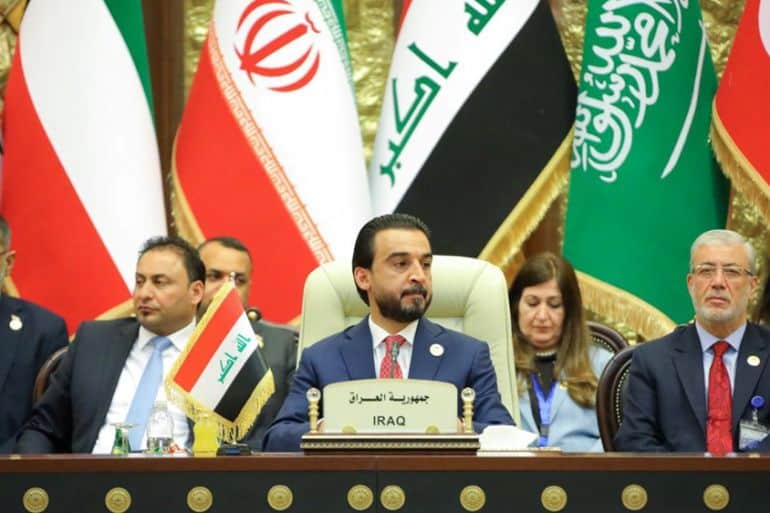In a decision grounded in judicial controversy, Iraq’s Parliament has confirmed the cessation of membership for its ex-Speaker, Mohammed Al Halbousi. The decision, announced this Tuesday, comes in the wake of a protracted legal battle and is the result of a ruling by the nation’s highest court.
Earlier this year, accusations were levelled against Al Halbousi by Sunni legislator Laith Al Dulaimi of fraudulent activity. Al Dulaimi contended that Al Halbousi had manipulated his signature and fabricated a date on a resignation letter. The proceedings led to the Federal Supreme Court’s breakthrough ruling last week that not only resulted in Al Halbousi’s expulsion but also terminated Al Dulaimi’s presence as an MP.
The Federal Supreme Court order was ratified when Mohsen Al Mandalawi, the Deputy Speaker, signed the decision terminating Al Halbousi’s membership. Parallelly, Parliament addressed the Independent High Elections Commission in a letter this Monday, nominating a lawmaker to fill Al Halbousi’s now-vacant seat. As per established legal procedure, the seat will be given to the candidate who polled the most votes but lost to Al Halbousi in the October 2021 elections.
Post the 2003 US-led incursion that upended the reign of Saddam Hussein and subverted the existing political framework, the US installed a democratic system of governance. The newly established political architecture envisaged national elections every four years for the selection of members of Parliament and the formation of the government. The resultant setup, where the government’s formation is not anchored exactly on election results, has been a cauldron of broad-based dispute since its inception during the first free elections in 2005.
An unofficial but practised rule amongst political parties designates the largely ornamental role of president to a Kurd, the prime minister’s position to a Shiite and leaves the Speaker of Parliament’s office for a Sunni. The remaining governmental offices are distributed across the political factions in accordance with their religious and ethnic identities.
Despite the recent upheaval, Parliament has maintained its equilibrium and scheduled an extraordinary session dedicated to voting for a fresh Speaker of Parliament this coming Wednesday. Sunni political entities, however, remain mired in stalemate over the nomination of an acceptable candidate. Al Halbousi, refusing to concede defeat, is advocating for a nominee from his Taqadum Party as his rivals eye the vacant berth.
Following the ruling by the Federal Supreme court, Al Halbousi brought constitutional disputes to bear, contending the court had stepped beyond its legal parameters when addressing Parliamentary membership. He asserted that the court is solely responsible for arbitrating constitutional issues consensus of legislative and regulatory mandates, as well as adjudicating disputes across federal governments, regions, and provinces. Membership and cessation of membership to the Parliament, he insisted, fall within the purview of the constitution, applicable laws and procedural protocols which he claims sit outside the court’s authority.
Shrugging off the dismissal, The Taqadum Party released a statement indicating three ministers – of planning, industry and culture – were planning on resigning in light of Al Halbousi’s termination. This party-wide revolt extends to participation, with party members refusing to attend Parliamentary sessions and commit to political dialogues with other parties. However, these resignations have been rejected by Iraqi Prime Minister Mohammed Shia Al Sudani, as per an official communication on Monday.
Image Credit: Iraqi Parliament media office via Reuters



















